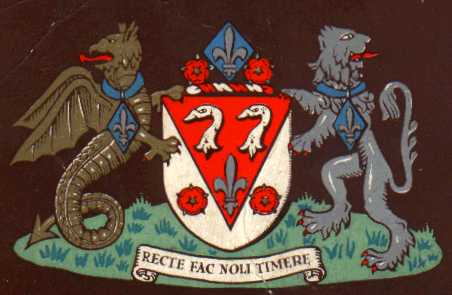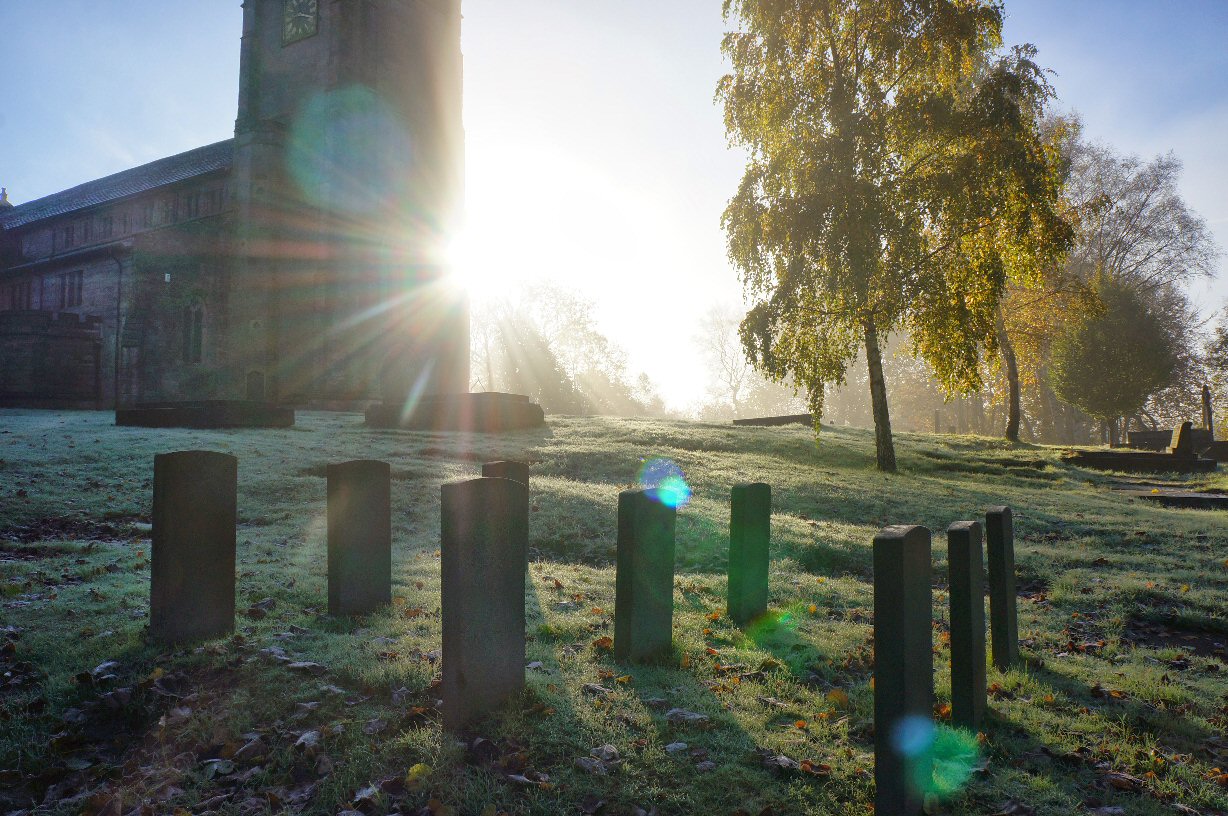 Lords
Saints
Places
People
Contact
Lords
Saints
Places
People
Contact
Edward Thorpe
Veteran of the Egyptian Campaign of 1882 (based upon article by Alan Jennings Facebook )
Edward Addin Thorpe's grave is in a corner of the lower 1851 part of the churchyard, it is below a drop on the right hand side as you walk West down the path that passes the tall white Brooks monument, with the church tower directly behind you.
The grave is dedicated to John Thorpe of Chorlton cum Hardy and his wife Sarah and their son Edward, the flat grave slab has a deeply carved oval framing a pair of crossed swords in relief.
His parents lived in Monton which came under the Parish of Eccles prir to 1912.
The Moonlight Charge
AT KASSASSIN
[ Thanks to Richard Lewis at St Andrew's in Eccles]
In the Church of St Andrew in Eccles is a memorial to Edward in the form of an Angel corbel, the angel holds a palm branch and the medal the Khedive star, the Khedive was the equivalent of a Viceroy and he ruled Egypt at the time. Edward must have taken part in the Anglo- Egyptian war, a nationalist uprising that took place, led by Ahmed Urabi against the Khedive Tewfik Pasha who was supported by the British. The Battle of Tell El Kebir took place in September 1882. The corbel was positioned next to a pre-existing stained glass window depicting biblical scenese of Moses, and Joseph in Egypt.
When November comes round, all ex service personnel buried or memorialised at St Mary's get a poppy delivered...so long as the graves are reachable. Feel free to join the churchyard volunteers maintaining this family grave and others, on Tuesday mornings.
Donate to the upkeep of the St Mary's Churchyard
Remembrance :
Remembrance of those that have served the Nation in conflict.
[St Mary's NORTH]
The inscription reads Edward Addin Thorpe, The 7th Dragoon Guards only surviving son of John and Sarah Thorpe of Monton near Eccles who died January 19th 1883 at Helonan, Egypt, in the 30th year of his age.'
I have fought a good fight, I have finished the course, I have kept the faith'.
The 7th arrived in Egypt, August 1882, and also took part in some engagements prior to the push for Tel-El-Kebir,
their 2nd engagement became something of a headline event...The Moonlight Charge.
RAINED on all day by the sun,
Beating through helmet and head,
Through to the brain.
Inactive, no water, no bread,
We had stood on the desolate plain
Till evening shades drew on amain;
And we thought that our day's work was done,
When, lo! it had only begun.
'Charge!' And away through the night,
Toward the red flashes of light
Spurting in fire on our sight,
Swifter and swifter we sped.
'Charge!' At that word of command,
On through the loose-holding sand,
On through the hot, folding sand,
Through hailstorms of iron and lead,
Swifter and swifter we sped.
Thud! fell a friend at my hand;
No halt, ne'er a stay, nor a stand.
What though a comrade fell dead?
Swifter and swifter we sped.
Only the red, flashing light
Guided our purpose aright;
For night was upon us, around,
Deceptive in sight as in sound.
We knew not the enemy's ground,
We knew not his force;
But on, gaining pace at each bound,
Flew man and horse.
Burst on the enemy's flank,
On through his gunners and guns,
Swifter and swifter we sped;
Over each bayonet-ranged rank,
Earthward their dusky waves sank,
Scattered and fled.
They ran as a startled flock runs;
But still we pursued o'er the plain,
Till the rising moon counted the slain,
And some hundred Egyptians lay dead.
Oh! 'twas a glorious ride,
And I rode on the crest of the tide.
We dashed them aside like the mud of the street,
We threshed them away like the chaff from the
wheat,
We trod out their victory under our feet,
And charged them again and again;
For demons were loose on the hot-breathing wind,
And entered the souls of our men.
A feverish delight filled our bones,
Heightened by curses and groans—
The mind taking hold of the body, the body react-
ing on mind.
Ha! 'twas a glorious ride,
Though I miss an old friend from my side,
And sadness is mingled with pride.
Still, 'twas a glorious ride—
That race through the darkness, the straining, the
shock,
The struggle, and slaughter by Kassassin lock.
Wikipedia states.... The British Officially losing only 57 troops while killing over two thousand Egyptians, the British army had more casualties due to heatstroke than enemy action. The Urabi forces were routed and the British cavalry captured the undefended Cairo, Helonan, where Edward died, is a suburb of Cairo.
The war was at an end The majority of the British army went to Alexandria and took ship for home in November leaving just an army of Occupation and of course, our dead troops, this gave firm British influence over Egypt at the expense of the Egyptians, the French and the Ottoman Empire which retained only nominal authority. Little solace to Edwards parents
Or donate to help us get in the professional tree surgeons and stone masons.


Remembrance in & around Prestwich